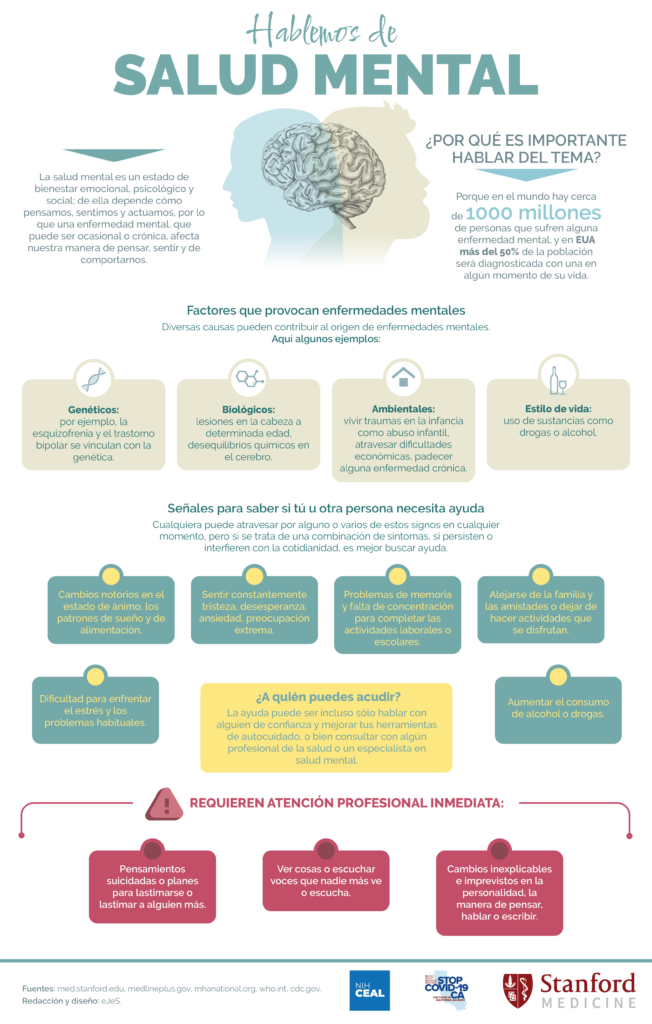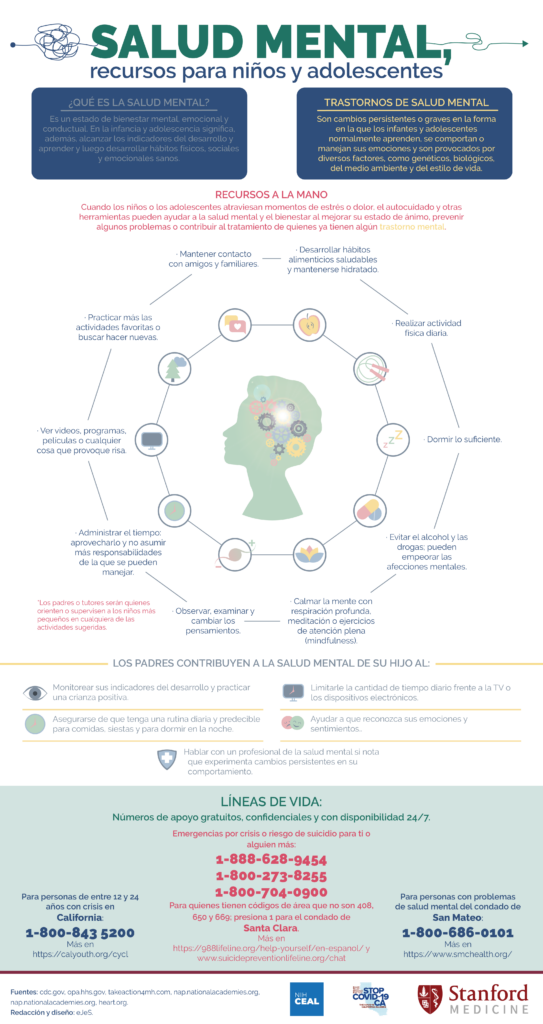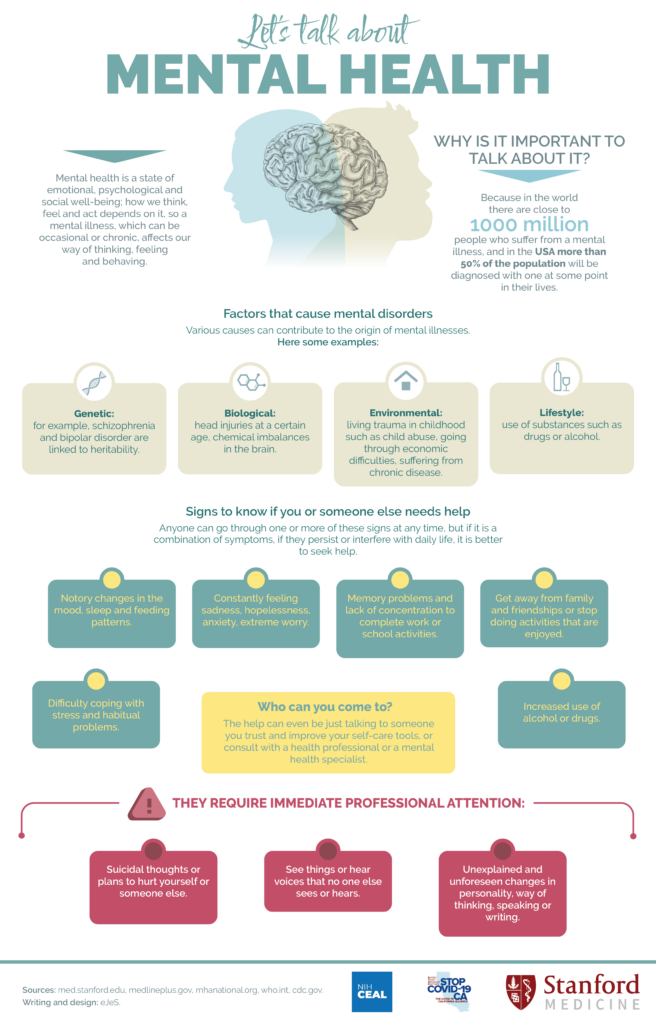Faced with the various situations and challenges that are faced every day, people can go through many feelings, ideas, sensations and thoughts, but really, when do you think about needing help or looking for your mental well-being? Especially when it occurs in children or adolescents.
Mental health is a state of mental, emotional and behavioral well-being, and in childhood and adolescence it also means reaching development and learning indicators, and then developing healthy physical, social and emotional habits.
Meanwhile, mental health disorders are persistent or severe changes in the way in which infants and adolescents normally learn, behave or manage their emotions and are caused by various genetic, biological, environmental and lifestyle factors.
According to the Centers for Disease Control and Prevention (CDC), mental disorders are among the most common health conditions in the United States.
Thus, the agency detailed, 1 in 5 children, either currently or at some point in their lives, has had a seriously debilitating mental illness; while more than 1 in 3 high school students had experienced persistent feelings of sadness or hopelessness in 2019, an increase of 40 percent since 2009.
In 2019, about 1 in 6 youth reported having made a suicide plan in the past year, an increase of 44 percent since 2009.
While 1 in 5 Americans will experience a mental illness in any given year, and 1 in 25 Americans are living with a serious mental illness, such as schizophrenia, bipolar disorder, or major depression.
According to the alliance of physicians and specialists STOP COVID-19 CA and Stanford Medicine, when children or adolescents are going through times of stress or pain, self-care and other tools can help mental health and well-being by improving their mood. , prevent some problems or contribute to the treatment of those who already have a mental disorder.
But how to help?
According to specialists, it is important to maintain contact with friends and family; develop healthy eating habits and stay hydrated; perform daily physical activity; practice more favorite activities or seek to do new ones; watch videos, shows, movies or anything that makes you laugh.
Also, manage time, taking advantage of it and not assuming more responsibilities than can be handled; observe, examine and change thoughts; calm the mind with deep breathing, meditation or mindfulness exercises; get enough sleep; and avoiding alcohol and drugs, as they can worsen mental conditions.
It should be noted that specialists have pointed out that parents contribute to their child's mental health by monitoring their development indicators and practicing positive parenting; as well as by limiting the daily time in front of the television or electronic devices; making sure they have a predictable daily routine for meals, naps, and sleeping at night; as well as help to recognize their emotions and feelings.
Last but not least, parents can help their child by talking to a mental health professional if they notice persistent changes in behavior.
There are close to a billion people in the world who suffer from a mental illness, while in the US more than 50 percent of the population will be diagnosed with one at one point in their lives.
recognize the signs
- Anyone can go through one or more of these signs at any time, but if it is a combination of symptoms, if they persist or interfere with daily life, it is better to seek help.
- Noticeable changes in mood, sleep patterns, and eating.
- Constantly feeling sadness, hopelessness, anxiety, or extreme worry.
- Memory problems and lack of concentration to complete work or school activities.
- Withdrawing from family and friends or stopping activities you enjoy.
- Increase the consumption of alcohol and drugs.
- Difficulty coping with stress and habitual problems.
Who requires immediate professional attention?
- Those who have suicidal thoughts or plans to hurt themselves or someone else.
- The ones who see things or hear voices that no one else sees or hears.
- Those with unexplained and unexpected changes in personality, way of thinking, speaking or writing.
Where to find help?
While it can even be just talking to someone you trust and improving self-care tools that can help, it's also important to consult with a health professional or mental health specialist.
Lifelines: free and confidential support number available 24 hours a day, 7 days a week.
- Crisis emergencies or suicide risk for you or someone else: 1-888-628-9454; 1-800-273-8255; 1-800-704-0900. For those with area codes other than 408, 650, and 669; press 1 for Santa Clara County.
- They can also access the sites http://988lifeline.org/help-yourself/en-espanol/ and www.suicidepreventionlifeline.org/chat.
- For people ages 12-24 in crisis in California: 1-800-843-5200 or visit the site https://calyouth.org/cycl.
- For people with mental health issues in San Mateo County: 1-800-686-0101 on-site https://www.smchealth.org/.




You may be interested in: "Long Covid: What it's like to have prolonged COVID


